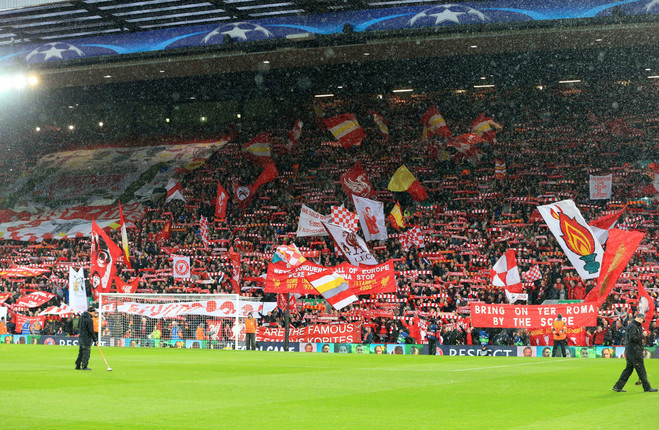THIS WEEK’S GUEST on Behind the Lines is author and columnist with the UK Independent, Tony Evans.
Tony has also written a number of books including Two Tribes: Liverpool, Everton and a City on the Brink, focusing on the 1985/86 season, which took place in the aftermath of the Heysel stadium disaster and to a backdrop of a battle between Liverpool city council and Margaret Thatcher’s government.
- The full conversation with Tony is now available to listen to, so to get access to it along with the full 81-episode Behind the Lines archive, subscribe at members.the42.ie. And for a limited time, you can get €5 off an annual membership by using the promo code BTL.
The council defied London by running a deficit to invest in public services in Liverpool, a city Thatcher’s cabinet had previously discussed putting into “managed decline.”
After the Heysel disaster, in which 39 Juventus fans lost their lives, Thatcher’s government decided that all English teams – not just Liverpool – should be withdrawn from European competition, and the FA and Uefa acted on her desire. The decision denied recently-crowned champions Everton a chance at winning the European Cup the following season, but as Peter Reid, then of Everton, told Evans for Two Tribes, “the Heysel ban wasn’t really about football, it was an attack on working-class culture.”
“Reidy understood it”, says Evans on Behind the Lines. ”Football fans were part of the enemy within. Thatcher needed enemies to exist. Thatcherism is a really empty political philosophy, it was basically the uprising of the Grammar School kids tying to snatch more power and they didn’t care about anyone behind them or below them.
“The people they despised the most was the working classes, and they hated working class culture. So they attempted, wherever they could, to destroy and demean it. Football was – and still remains – the biggest expression of working class culture in the United Kingdom.”
Does Tony still see today’s football in the same way, as the best articulation of working class culture in the UK?
“People are aware of the owners and that it is a capitalist enterprise, but it always was. People have always made money out of football, they have never not made money out of it. And they have always cried poverty, ‘Oh I poured all my money into a football club and I lost it all’, most of them were taking out more than they put in.
“Football is the only business you can asset strip on an annual basis and people would come back for more. It was always a capitalist enterprise. There are parallel mindsets. You have the owners who want to win or want to come close to winning – some would rather come second so they don’t have to pay the bonuses – and the fans.
“Both have different interests but ultimately leading to the same thing: success. That was as true in the 1970s and 1980s as it is now, except now ownership generally were not as obviously rapacious as they are now.
“Football has been a business since it started, but it has also been a cultural symbol and a flag-bearer for a place and identity. It can be both at the same time. People act like it can’t be both. ‘Awh, Fenway Sports Group are American venture capitalists, how can you support Liverpool?’
“Because they are not Liverpool. They own them for now, it’s like attaching yourself too close to a player. Players and owners are passing through, what remains is the football club. Will it mean less in the future? It means something different. I do think these two things can co-exist.”
Listen to the full interview with Tony by subscribing at members.the42.ie.

